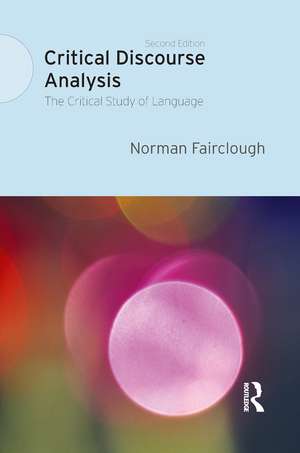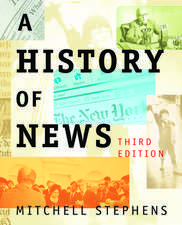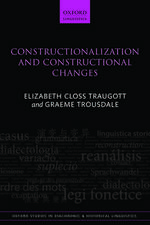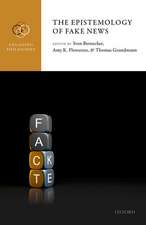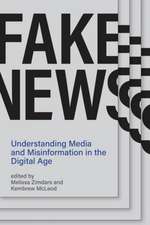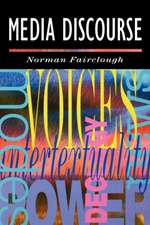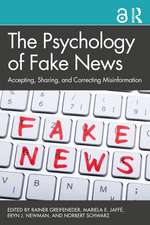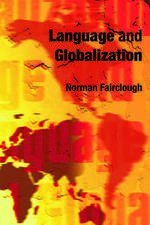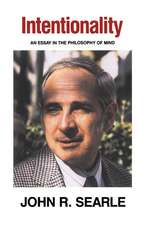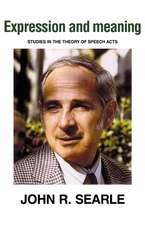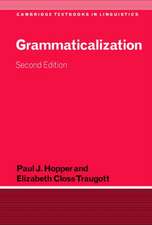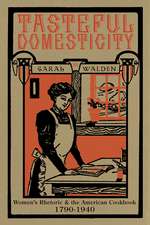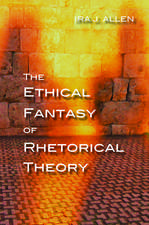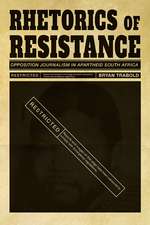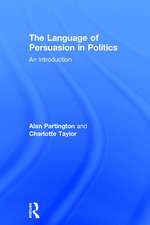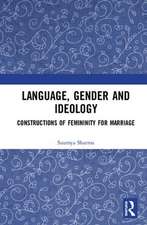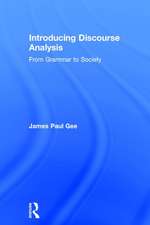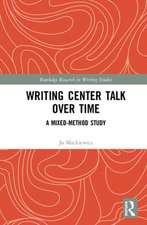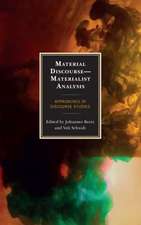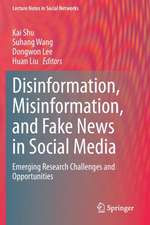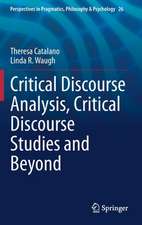Critical Discourse Analysis: The Critical Study of Language
Autor Norman Faircloughen Limba Engleză Hardback – 18 sep 2018
The book is divided into seven sections covering the following themes:
- language in relation to ideology and power
- discourse in processes of social and cultural change
- dialectics of discourse, dialectical relations between discourse and other moments of social life
- methodology of critical discourse analysis research
- analysis of political discourse
- discourse in globalisation and ‘transition’
- critical language awareness in education
The new edition has been extensively revised and enlarged to include a total of twenty two papers. It will be of value to researchers in the subject and should prove essential reading for advanced undergraduate and postgraduate students in Linguistics and other areas of social science.
| Toate formatele și edițiile | Preț | Express |
|---|---|---|
| Paperback (1) | 316.50 lei 22-36 zile | +41.19 lei 6-12 zile |
| Taylor & Francis – apr 2010 | 316.50 lei 22-36 zile | +41.19 lei 6-12 zile |
| Hardback (1) | 1033.91 lei 43-57 zile | |
| Taylor & Francis – 18 sep 2018 | 1033.91 lei 43-57 zile |
Preț: 1033.91 lei
Preț vechi: 1260.87 lei
-18% Nou
Puncte Express: 1551
Preț estimativ în valută:
197.90€ • 215.04$ • 166.34£
197.90€ • 215.04$ • 166.34£
Carte tipărită la comandă
Livrare economică 21 aprilie-05 mai
Preluare comenzi: 021 569.72.76
Specificații
ISBN-13: 9781138357235
ISBN-10: 1138357235
Pagini: 608
Dimensiuni: 156 x 234 x 40 mm
Greutate: 1.42 kg
Ediția:2
Editura: Taylor & Francis
Colecția Routledge
Locul publicării:Oxford, United Kingdom
ISBN-10: 1138357235
Pagini: 608
Dimensiuni: 156 x 234 x 40 mm
Greutate: 1.42 kg
Ediția:2
Editura: Taylor & Francis
Colecția Routledge
Locul publicării:Oxford, United Kingdom
Cuprins
General Introduction:
Section A Language, ideology and power
Introduction
1. Critical and descriptive goals in discourse analysis
2. Language and ideology
3. Semiosis, mediation and ideology: a dialectical view
Section B Discourse and social change
Introduction
4. Critical discourse analysis and the marketization of public discourse: the universities
5. Discourse, change and hegemony
6. Ideology and identity change in political television
Section C Dialectics of discourse: theoretical developments
Introduction
7. Discourse, social theory and social research: the discourse of welfare reform
8. (with R Jessop, A Sayer) Critical realism and semiosis
Section D Methodology
9. A dialectical-relational approach to critical discourse analysis in social research
10. (with Eve Chiapello) Understanding the new management ideology. A transdisciplinary contribution from Critical Discourse Analysis and New Sociology of Capitalism
11. Critical Discourse Analysis in researching language in the New Capitalism: overdetermination, transdisciplinarity and textual analysis
12. (with Phil Graham) Marx as a Critical Discourse Analyst: The genesis of a critical method and its relevance to the critique of global capital
13. Critical discourse analysis, organizational discourse, and organizational change
Section E Political discourse
Introduction
14. New Labour: a language perspective
15. Democracy and the public sphere in critical research on discourse
16. (with Simon Pardoe & Bronislaw Szerszynski) Critical discourse analysis and citizenship
17. Political correctness
Section F Globalization and ‘transition’
Introduction
18. Language and Globalization
19. Global capitalism, terrorism and war: a discourse-analytical perspective
20. Discourse and ‘transition’ in Central and Eastern Europe
Section G Language and education
Introduction
21. Critical language awareness and self-identity in education
22. Global capitalism and critical awareness of language
References
Index
Section A Language, ideology and power
Introduction
1. Critical and descriptive goals in discourse analysis
2. Language and ideology
3. Semiosis, mediation and ideology: a dialectical view
Section B Discourse and social change
Introduction
4. Critical discourse analysis and the marketization of public discourse: the universities
5. Discourse, change and hegemony
6. Ideology and identity change in political television
Section C Dialectics of discourse: theoretical developments
Introduction
7. Discourse, social theory and social research: the discourse of welfare reform
8. (with R Jessop, A Sayer) Critical realism and semiosis
Section D Methodology
9. A dialectical-relational approach to critical discourse analysis in social research
10. (with Eve Chiapello) Understanding the new management ideology. A transdisciplinary contribution from Critical Discourse Analysis and New Sociology of Capitalism
11. Critical Discourse Analysis in researching language in the New Capitalism: overdetermination, transdisciplinarity and textual analysis
12. (with Phil Graham) Marx as a Critical Discourse Analyst: The genesis of a critical method and its relevance to the critique of global capital
13. Critical discourse analysis, organizational discourse, and organizational change
Section E Political discourse
Introduction
14. New Labour: a language perspective
15. Democracy and the public sphere in critical research on discourse
16. (with Simon Pardoe & Bronislaw Szerszynski) Critical discourse analysis and citizenship
17. Political correctness
Section F Globalization and ‘transition’
Introduction
18. Language and Globalization
19. Global capitalism, terrorism and war: a discourse-analytical perspective
20. Discourse and ‘transition’ in Central and Eastern Europe
Section G Language and education
Introduction
21. Critical language awareness and self-identity in education
22. Global capitalism and critical awareness of language
References
Index
Descriere
Critical Discourse Analysis (CDA) is an interdisciplinary approach to the study of discourse which views language as a form of social practice and focuses on the ways social and political domination is reproduced by text and talk.
Norman Fairclough’s classic book on CDA, now in a long-awaited new edition, provides an historical overview to this important discipline and focuses on cutting-edge research in the field. The book brings together in one volume papers from a wide range of sources, many of which are difficult to access.
Norman Fairclough’s classic book on CDA, now in a long-awaited new edition, provides an historical overview to this important discipline and focuses on cutting-edge research in the field. The book brings together in one volume papers from a wide range of sources, many of which are difficult to access.
